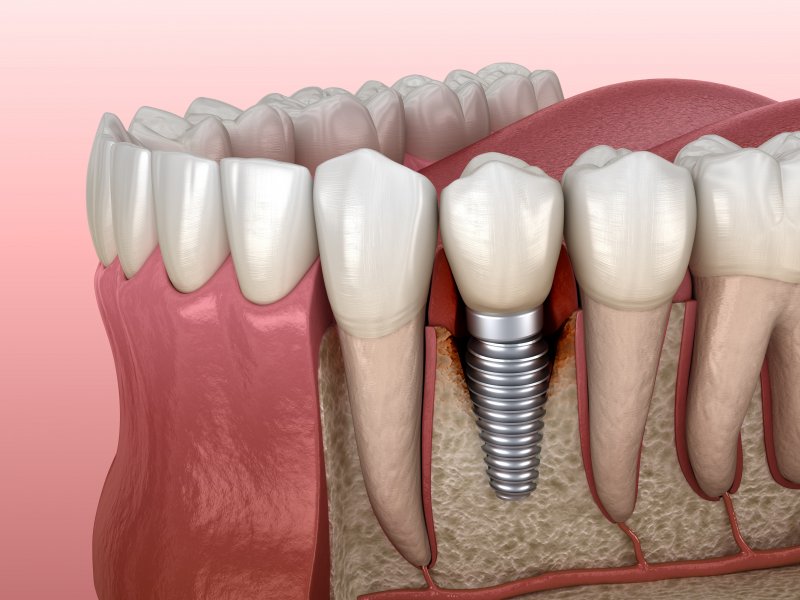Dental Implant Failure: How to Recognize the Problem & Get the Help You Need
November 7, 2024

If you have dental implants, you already understand how life-changing these prosthetics can be. Offering stability, longevity, and full functionality, their placement makes them look and feel just like natural teeth – the kind of results you can’t get with any other similar solution. Unfortunately, while they have a 90-95% success rate, there are instances when a failed dental implant can occur. Read on to discover what signs indicate a problem, how your dentist can address it, and what you can do to avoid this potential issue from the start.
Which Signs Indicate a Failed Dental Implant?
There are a few different reasons why a dental implant might fail: peri-implantitis (a form of gum disease), facial trauma, unsuccessful osseointegration, lifestyle habits, and improper placement.
You may not recognize there is a problem until one or more of these signs occur:
- Your implant feels loose
- Pain surrounding the implant
- Swelling
- Bone loss around the implant post
- Infection
How Can a Dentist Treat a Failed Dental Implant?
Treating a failed dental implant requires that you meet with your dentist to discuss the reason for failure and how best to save your smile from further harm. This will include taking dental X-rays of your mouth so that your dental team can prepare a plan that suits your needs.
If peri-implantitis is to blame, your dentist will need to administer gum disease treatment to eliminate the infection. If bone loss has occurred, it may be necessary to remove the implant and incorporate new grafting material into the space so that the area will thoroughly heal over time. Once the bone appears to be denser, discussions can begin as to whether a new dental implant will be put into place.
Lifestyle habits like smoking can require you to think about whether this type of tooth replacement is the right option for you. Although more convenient than other solutions, smoking can make it much harder to keep your prosthetics for longer. Finding cessation resources can often be the most effective approach should you suffer a failed dental implant, as quitting will allow you to consider these artificial teeth in the future.
How Can a Failed Dental Implant Be Avoided?
When choosing to replace your missing teeth with dental implants, it’s important that you commit to taking the proper steps to ensure the health and longevity of your new smile. If you want to lower your risk of experiencing a failed dental implant, you’ll need to:
- Practice good oral hygiene at home. This means brushing twice daily for two minutes with a soft-bristled toothbrush and fluoride toothpaste. You’ll also need to floss each day to reduce your risk of peri-implantitis.
- See your dentist every six months for regular checkups and cleanings so they can examine your mouth and check your prosthetics for any damage.
- Eat nutritious foods that benefit both your smile and body. Increasing your calcium intake can help keep your jawbone stronger.
- Give up unhealthy habits like smoking, chewing on hard objects, and biting your fingernails.
- Wear the necessary mouth protection if you play sports or grind your teeth.
A failed dental implant doesn’t have to be your reality. Taking the appropriate steps to keep your smile healthy will ensure you keep enjoying our beautiful new teeth for the rest of your life.
About the Author
Dr. Ukti Phadnis is the owner of West Hartford Dental Group and received her Doctor of Medicine in Dentistry degree from the UConn School of Dental Medicine. An avid learner, she continues to enroll in various courses to expand her knowledge in the areas of dental implants, TMJ therapy, cosmetic dentistry, and Invisalign. Offering start-to-finish dental implant placement & restoration in-house, she helps patients enjoy life with a healthier smile. She also remains ready to use effective solutions to save these same smiles should dental implant failure occur. If you or a loved one notices any signs that your implant might be in trouble, contact their office at (860) 606-3953 or visit the website.

